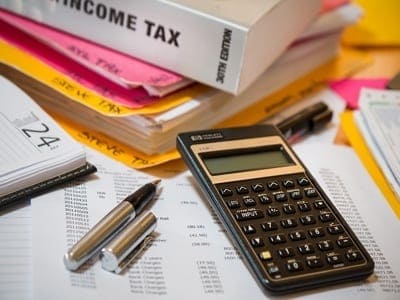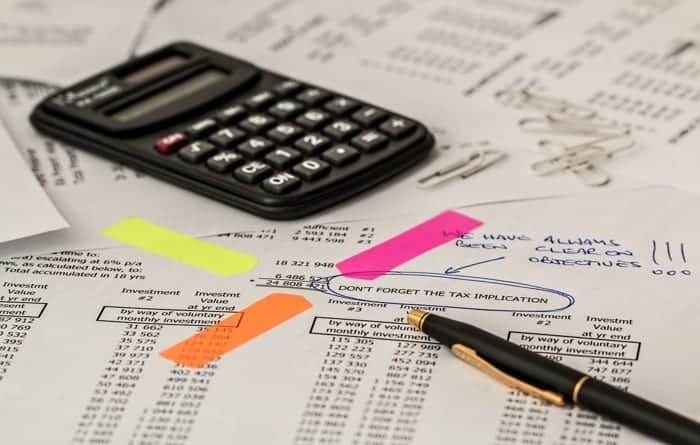Understanding Hong Kong’s Corporate Tax System: A Practical Guide for Businesses

Hong Kong is globally recognised as one of the most tax-efficient and business-friendly jurisdictions for entrepreneurs, SMEs, and multinational companies. Its low corporate tax rates, territorial taxation framework, and streamlined compliance requirements make it a preferred destination for company incorporation, regional headquarters, and cross-border trading activities.
This guide provides a comprehensive overview of Profits Tax in Hong Kong, including how corporate tax is calculated, applicable tax rates, filing and compliance obligations, provisional tax rules, available incentives, and loss treatment, helping businesses stay compliant while optimising their tax position.
Hong Kong’s Flat Corporate Tax Rate
Hong Kong follows a territorial taxation system. Thus, taxes will only apply on profits which either arise or derive from conducting trade, business or profession in Hong Kong. If your business profits are outside Hong Kong, they are not eligible for profits tax.
Resident vs Non-Resident Tax Treatment
Hong Kong’s tax system doesn’t distinguish between residents and non-residents. This means that if you happen to be a resident of Hong Kong, but your business profits come from outside the country, you are not liable to Hong Kong’s profits tax.
Corporate Tax Rates in Hong Kong
The standard corporate Tax rate in Hong Kong is 16.5%. However, certain income categories benefit from concessionary tax treatment, including:
- Trading profits
- Interest income from qualifying debt instruments
These income streams may be taxed at 50% of the normal Profits Tax rate. The same concession also applies to qualifying offshore business activities of professional reinsurance companies.
Single-Tier Tax System in Hong Kong
Hong Kong uses a Single-Tier Tax System (STS). This means that the profits of a Hong Kong company will be subject to only a one-time levy. Once a company has declared its dividends and distributed its profits, then they are no longer considered taxable.
How to File Corporate Tax in Hong Kong?
Filing corporate tax in Hong Kong involves submitting an annual Profits Tax Return to the Inland Revenue Department (IRD), along with the required supporting documents.
Each year, the IRD issues Profits Tax Returns on 1 April to companies that are subject to tax. Once the return is issued, businesses are generally expected to submit it within one month.
If your company has been recently incorporated, you won’t need to worry about filing immediately. In most cases, the IRD issues the first Profits Tax Return around 18 months after your business begins operations, giving you enough time to prepare audited accounts.
Documents Required to File Corporate Tax in Hong Kong
You need to submit a complete set of Hong Kong corporate (profits) tax returns to the IRD. A complete set would comprise the following:
- Your specific profits tax return form (issued by the IRD).
- A supplementary form from the IRD for tax and financial data.
- Certified copy of your balance sheet, auditor’s report, and profit and loss accounting report.
- A tax computation revealing the amount of assessable profits (or adjusted loss).
Filing Requirements for Small Corporations
If your company is a small corporation with a gross income which does not exceed HKD500,000 for the basis period, you must file your Hong Kong profits tax return and supplementary form.
What is the Provisional Profits Tax?
Hong Kong’s provisional profits tax is the amount of assessable profits payable on the Year of Assessment. Since assessable profits are only defined at the end of the year, you must issue an estimated tax which is based on numbers from the previous year.
How Provisional Tax Is Paid?
Provisional Profits Tax in Hong Kong is generally paid in two instalments:
- First Instalment: 75% of the estimated tax liability
- Second Instalment: Remaining 25% payable approximately three months later
Once your final tax assessment is completed based on the actual assessable profits made, will credit be given for the provisional tax paid.
Benefits of Tax Incentives and Corporate Tax in Hong Kong
Hong Kong’s corporate tax system is designed to be simple, transparent, and business-friendly, offering multiple advantages for companies operating locally or regionally.
Key Tax Incentives for Hong Kong Companies:
- 100% Deduction for Plant and Machiner
Companies can claim a full deduction for capital expenditure on plant and machinery used in their operations, encouraging investment in essential business equipment.
- 20% Deduction for Building Installation
Capital expenditure on installations forming part of a building or structure can be deducted at 20% per year over 5 consecutive years, supporting long-term business infrastructure development.
- Immediate Write-Off for Manufacturing and IT Assets
Businesses can immediately write off expenses for manufacturing plant, machinery, computer hardware, and software, allowing faster cost recovery.
- Tax Concessions for Qualified Debt Instrument
Gains from qualified debt instruments may be subject to preferential tax treatment, reducing companies’ overall taxable income.
- Concessionary Tax Rate for Offshore Reinsurance Busines
Professional reinsurance companies conducting offshore business operations can benefit from a lower corporate tax rate, enhancing Hong Kong’s attractiveness as a reinsurance hub.
- Tax Exemption on Interest from Authorised Deposits
Interest income earned from deposits with authorised institutions in Hong Kong is generally tax-exempt, except when received or accrued by financial institutions.
- Five-Year Write-Off for Refurbishment of Business Premise
Capital expenditure on refurbishing business premises can be written off over five years of assessment, supporting property and operational upgrades.
- Tax Exemption for Offshore Fund
Non-resident individuals, partnerships, trustees, or corporations investing through offshore funds enjoy tax exemption on profits from transactions such as:
– Securities
– Futures contracts
– Foreign exchange contracts

How Are Business Losses Treated Under Hong Kong Profits Tax?
Hong Kong provides a favourable framework for managing business losses, allowing companies to carry forward losses to offset future profits.
If your Hong Kong-based company incurs losses during the accounting year, these losses can be carried forward indefinitely. This helps set off against future profits. Further, there are no group relief losses in Hong Kong, and capital loss expenses do not qualify as deductions.
Conclusion
Navigating Hong Kong’s corporate tax system can be complex, primarily when businesses aim to maximise deductions and take advantage of available incentives.
At 3E Accounting, we provide comprehensive support for Profits Tax filings, provisional tax planning, and corporate tax advisory. Our services help businesses stay compliant, reduce tax liabilities, and leverage all available tax benefits.
With professional assistance, companies can focus on growth, strategic planning, and long-term success, confident that their corporate tax obligations in Hong Kong are managed accurately and efficiently.

